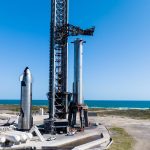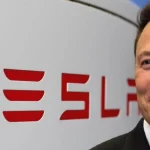Elon Musk Claims He Can Turn Water into Rocket Fuel with a Wink!

Elon Musk Claims He Can Turn Water into Rocket Fuel with a Wink!
In a revelation that has both stunned the scientific community and sparked widespread speculation, Elon Musk, the CEO of Tesla and SpaceX, has claimed that he has discovered a groundbreaking method to turn water into rocket fuel—using nothing more than a wink. Yes, you read that correctly. Musk, known for his bold, sometimes outlandish statements, insists that his latest discovery could change the way humanity powers its rockets, and it’s so simple and effective that it can be done with a mere flick of his eye.
While Musk has built a reputation for pushing the boundaries of science and technology, this latest claim has left many wondering if it’s a true scientific breakthrough or just another of his eccentric PR stunts. Regardless of the skepticism, Musk’s assertion has sent ripples through the aerospace community, and he is promising to reveal more details in the coming weeks. So, is Musk really on the verge of discovering the secret to turning water into rocket fuel? Let’s dive into what we know and examine the implications of such an astonishing claim.
The Science of Turning Water into Rocket Fuel
At first glance, the idea of turning water into rocket fuel with a simple wink seems almost too good to be true. However, Musk’s claim hinges on a concept that is not entirely out of the realm of possibility in the world of advanced energy technologies. Water (H2O) is made up of hydrogen and oxygen, two elements that are already widely used in rocket propulsion systems. In fact, hydrogen and oxygen are combined in liquid form to create some of the most powerful rocket fuels used by space agencies around the world.
Hydrogen fuel, for example, is a key component of liquid rocket engines, such as the ones used in SpaceX’s Falcon rockets. When combined with oxygen, hydrogen produces a powerful reaction that propels rockets into space. Musk has hinted that his innovation may involve an entirely new method of extracting and utilizing hydrogen from water—perhaps more efficiently than current methods, which typically require complex processes like electrolysis or high-energy methods to separate the hydrogen atoms from water molecules.
However, the idea that Musk could turn water into rocket fuel simply by winking raises several questions. If it were that easy, it would represent a monumental breakthrough in both chemistry and physics. The process of extracting usable fuel from water requires a significant amount of energy, and current methods still rely on high-tech equipment, high heat, or electrochemical reactions. Musk’s “wink” could be a metaphor for a new method that dramatically simplifies the process, but the exact nature of this process remains unclear.
Musk’s hinting at this “wink-powered” fuel suggests that the breakthrough might involve quantum mechanics, advanced materials science, or an entirely new method of harnessing energy that we do not fully understand yet. Given Musk’s history of turning sci-fi ideas into reality (think Tesla’s electric vehicles or SpaceX’s reusable rockets), it’s not entirely out of the question that he’s working on something revolutionary.
What Musk’s Claim Could Mean for Space Exploration
If Elon Musk’s claim proves to be true, it could represent a seismic shift in the way we power space missions. Rocket launches are incredibly energy-intensive, and one of the biggest hurdles in space exploration has been the cost and complexity of rocket fuel. Traditional fuels, such as liquid hydrogen and kerosene, are expensive to produce and difficult to store. If Musk has indeed discovered a method to extract rocket fuel from water with little to no energy expenditure, it could make space travel significantly more affordable and sustainable.
For SpaceX, this discovery could have major implications for future missions to the Moon, Mars, and beyond. Musk has long maintained that reducing the cost of space travel is key to making interplanetary colonization a reality. A low-cost, efficient fuel source derived from water could make deep-space travel more feasible, cutting costs and allowing for longer-duration missions. This could open the door to more ambitious projects, such as human settlement on Mars, and could even support the future of space tourism, where cost-effective launches are a critical component.
In addition to reducing the cost of fuel, this discovery could also solve another major issue in space exploration: sustainability. Space agencies and private companies have long faced challenges in producing enough fuel for long-duration space missions. A method that allows for the extraction of fuel from water—an abundant resource on Earth and even on the Moon and Mars—would enable spacecraft to “refuel” using local resources rather than relying on supplies sent from Earth. This concept, known as in-situ resource utilization (ISRU), is already part of Musk’s vision for Mars colonization, and water-powered rocket fuel could play a key role in this effort.
The Wink: A Literal or Metaphorical Process?
One of the most perplexing aspects of Musk’s claim is his reference to the process of turning water into rocket fuel with a “wink.” The phrase is either a playful exaggeration or a reference to a highly simplified method that Musk and his team have developed. While it is unlikely that Musk is suggesting that the process can be completed by simply blinking, the use of such a phrase may point to a new, easy-to-use technology that can extract hydrogen from water in a way that requires far less effort than current methods.
It’s possible that Musk is teasing an innovation that uses an advanced form of nanotechnology, quantum physics, or molecular manipulation that could make the fuel extraction process incredibly efficient and almost instantaneous. A “wink” could, in this case, be a metaphor for a small, seemingly simple action that triggers a much larger, more complex process of turning water into a powerful rocket fuel.
Alternatively, the wink could refer to the concept of a breakthrough that seems almost magical in its simplicity, which is consistent with Musk’s style of unveiling groundbreaking technologies. By revealing the “wink” aspect of the process, Musk may be building anticipation for a future announcement that will explain the science behind the claim in more detail.
The Skepticism: Is It Possible?
While Musk’s statement has captured the imagination of many, there are plenty of skeptics who question the feasibility of turning water into rocket fuel with such ease. The laws of thermodynamics, particularly the principle that energy cannot be created or destroyed, suggest that extracting hydrogen from water is not as simple as it sounds. In theory, it would take energy to break the chemical bonds between hydrogen and oxygen in water, and producing rocket fuel with no energy input would violate established scientific principles.
However, this doesn’t necessarily mean that Musk’s claim is pure fantasy. Over the years, numerous breakthroughs have challenged our understanding of physics and chemistry. Musk’s ability to turn seemingly impossible ideas into reality—like reusable rockets and electric cars—suggests that he may have developed a novel approach that circumvents traditional methods of energy production. If anyone can defy the constraints of current science, it is likely Musk, whose companies have a long history of overcoming seemingly insurmountable obstacles.
The Future of Rocket Fuel: A Game-Changer for SpaceX and Beyond
If Elon Musk’s claim proves to be legitimate, it would be nothing short of a revolution for the space industry. Water-powered rocket fuel could lower the cost of space travel, make missions to other planets more viable, and significantly contribute to the long-term sustainability of human space exploration. Musk’s vision of a multiplanetary future could become more achievable if his new method of fueling rockets with water proves effective.
Regardless of whether or not the wink-powered fuel is a literal or metaphorical concept, Musk’s announcement has once again captured the world’s attention. SpaceX has already changed the game with its reusable rockets, and this new claim—if substantiated—could be yet another giant leap forward in the quest for interplanetary travel.
As with all of Musk’s ambitious projects, the world will be watching closely for further developments. Whether it’s a wink of genius or just an elaborate teaser, this latest claim has opened the door for further exploration of the possibilities of water as rocket fuel, and the potential to transform the space industry as we know it.







